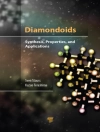The book presents risk management from an engineering perspective. Both a systemic and analytic viewpoint are important in this regard. The introduction to the concept of ‚risk‘ is followed by risk management principles, risk diagnostic, analysis and treatment, event analysis, crisis management, economic issues, risk governance followed by examples of practical implementation in chemistry, physics and emerging technologies such as nanoparticles. Finally, also a number of well-known major industrial accidents are discussed, and how one can learn from accidents. The book is aimed at anyone faced with risk and safety issues. The target audience can be as diverse as students, engineers, scientists, sociologists, psychologists, or actually all practitioners and academics interested in the matter.
Inhaltsverzeichnis
From the Contents:
Preface: Is risk management only a matter of financial?
Introduction to engineering and managing risks
– ISO31000
– Hazards and risks
– Risk perception
– Objectives of engineering risk management (Risk Identification, Risk Analysis, Risk Handling, Risk Monitoring)
– Management techniques
Risk management principles
– Introduction to risk management
– Heinrich pyramid
– Incident/accident
– Risk modeling (static and dynamic)
Risk evaluation and prioritization
– PDCA (Plan Do Check Act) concept, Deming wheel
– Crisis management (example Katrina Hurricane)
– High Reliability Organizations and systemic risks
Risk diagnostic and analysis
– Introduction to risk assessment techniques
– HAZOP
– FMECA
– FTA / ETA
– Risk matrix
Risk treatment/reduction
– Prevention
– Protection
– Precautionary principle
– Risk mitigation; STOP (strategic, technical, operational and personal) principle
– Risk recording
– Risk management plan
– Business continuity plan
Event analysis
– How and why analyzing accidents
– Anatomy of an accident
– The causal tree method
– Examples
Examples of practical implementation of engineering risk management
– Chemistry field
– Physical hazards (lasers, cryogenics, ..)
– Emerging technologies (nanoparticles)
Über den Autor
Thierry Meyer, Ecole Polytechnique Fédérale de Lausanne, Switzerland; Genserik Reniers, University of Antwerp, Belgium.












